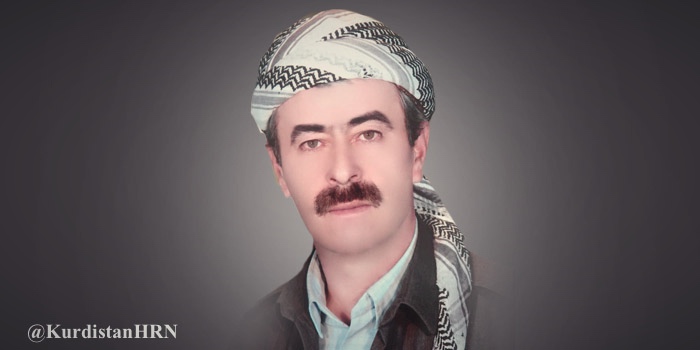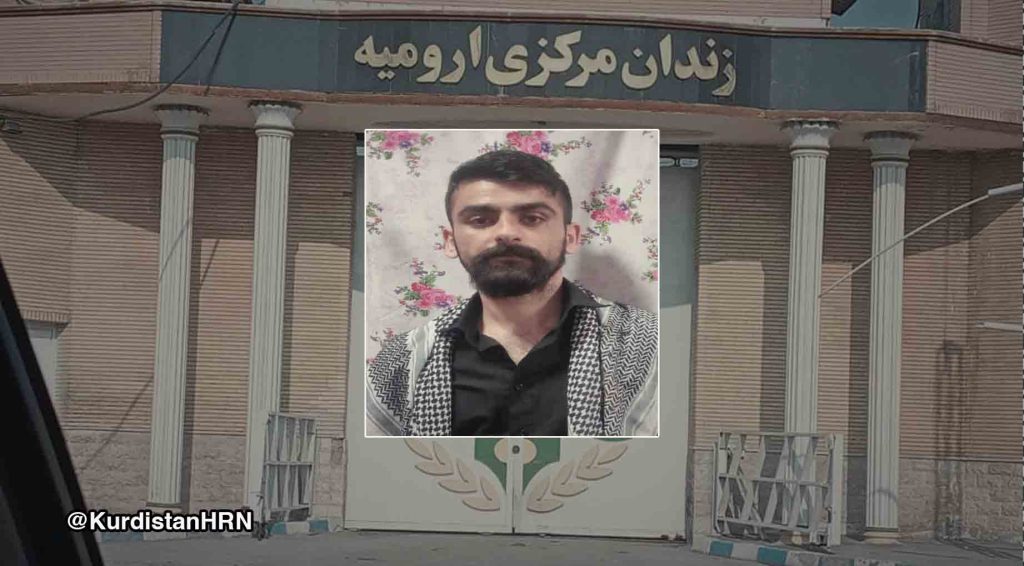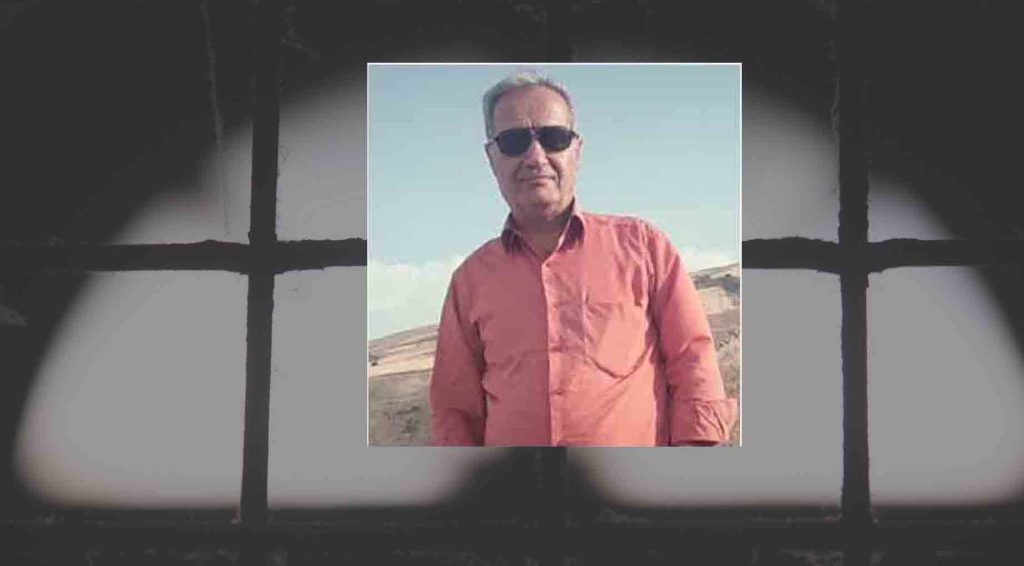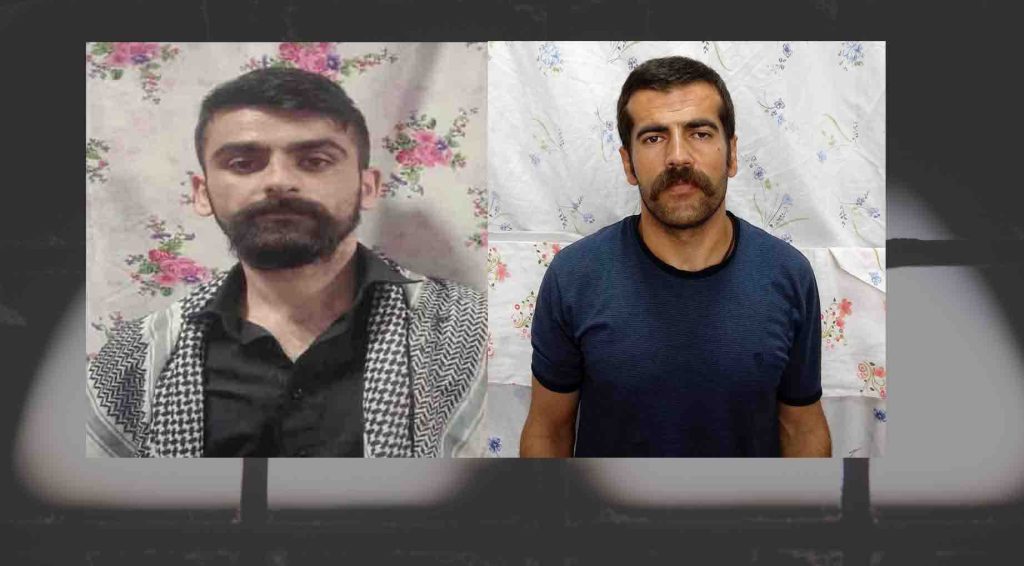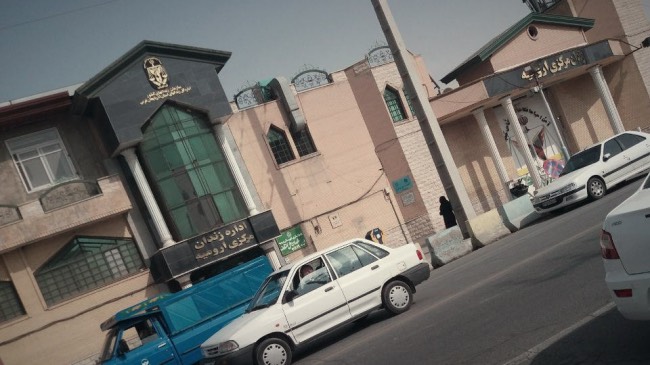Kurdish civilian from Mahabad
Detention date: 23 February 2014
Charged with: Enmity against God through membership in the Komala
Sentence: 30 years in prison and internal exile in Kashmar Central Prison
Current status: Imprisoned in Orumiyeh Central Prison
On 23 February 2014, the Iranian Ministry of Intelligence summoned and arrested Hossein Osmani, a 60-year-old civilian from Mahabad in West Azerbaijan province.
The civilian was transferred to the detention centre of the intelligence ministry in Orumiyeh, West Azerbaijan province, where he was held in solitary confinement for 13 months and was subjected to severe torture.
He was also denied his right to family visits during this period and only managed to make two short phone calls.
The political prisoner underwent medical treatment for four months at Imam Khomeini Hospital in Orumiyeh due to injuries he suffered as a result of the torture.
In April 2015, Branch 1 of the Islamic Revolutionary Court in Mahabad sentenced Osmani and two other political prisoners, Diyako Rasoulzadeh and Saber Sheikh Abdollah, to “execution in public”.
The court charged the civilians with “enmity against God” (moharebeh) through “membership of the Komala Party of Iranian Kurdistan” and “participation in the bombing incident of 2010 in Mahabad”.
The political prisoners were not given the right to hire their own lawyers in the trial that was presided over by judge Javadikia.
Following an appeal against the sentence, the case of the three prisoners was referred to Branch 47 of the Supreme Court.
The Supreme Court overruled the ruling and referred back to Branch 1 of the Revolutionary Court of Mahabad for reconsideration.
On 23 October 2018, Branch 1 of the Islamic Revolutionary Court of Mahabad, which was presided over by Judge Javad Gholami, sentenced Osmani to 30 years in prison and internal exile in Orumiyeh Central Prison.
Branch 31 of the Supreme Court upheld the verdict on 13 July 2019.
The verdict was upheld despite the political prisoner’s denial of all charges in both courts, stating that the charges were based on forced confessions obtained under torture.
After 11 months of imprisonment in Mahabad Prison, Osmani was transferred to Orumiyeh Central Prison on 23 September 2019.
In November 2018, an informed source had told the Kurdistan Human Rights Network (KNHR) that the confessions obtained under torture from Osmani and his two co-defendants had taken place at a time that government officials and the Islamic Revolutionary Guard Corps (IRGC) had made contradictory statements about the perpetrators of the bombing incident of 2010.
On 18 May 2014, the Ministry of Intelligence had issued a statement announcing the arrest of three “perpetrators of this bombing.” While three years earlier on 26 September 2010, the commander of the ground forces of the IRGC, Mohammad Pakpour, had announced that “the main and pivotal elements” of the bombing had been killed.
The commander of the IRGC’s ground forces had spoken to Iranian state news agencies about the operation and had said: “After several days of monitoring some movements and evidence, terrorist elements were identified and pursued. As soon as the terrorists entered the area of their meeting beyond the border and gathered with other anti-revolution elements, the siege operation was launched by the fighters of Hamzeh Seyyed al-Shohada camp. On Saturday, 25 September, a large number of mercenaries and those who feed on global hegemony, including the main and pivotal elements of the Mahabad terrorist crime, were killed in a special offensive operation.”
The source, who has been closely involved in the case of these political prisoners, said: “At the time of the interrogation of the three [Iranian] Kurdish citizens, the interrogators from the Ministry of Intelligence, first by torturing and then by encouraging to cooperate, had given promises of releasing them if they claimed responsibility for the bombing, otherwise the Ministry of Intelligence would have sentenced them to death by filing cases. Following their indictment, the three Kurdish citizens were denied the right to hire lawyers. During a court hearing at Branch 1 of the Islamic Revolutionary Court of Mahabad, Hossein Osmani rejected the confessions contained in the case file and told Judge Javadikia that he had been severely tortured while showing the scars resulting from the torture. However, the judge remained indifferent to these defences.”
In September 2014, the Press TV channel of the Islamic Republic of Iran broadcasted a video of the confessions obtained from these political prisoners.

